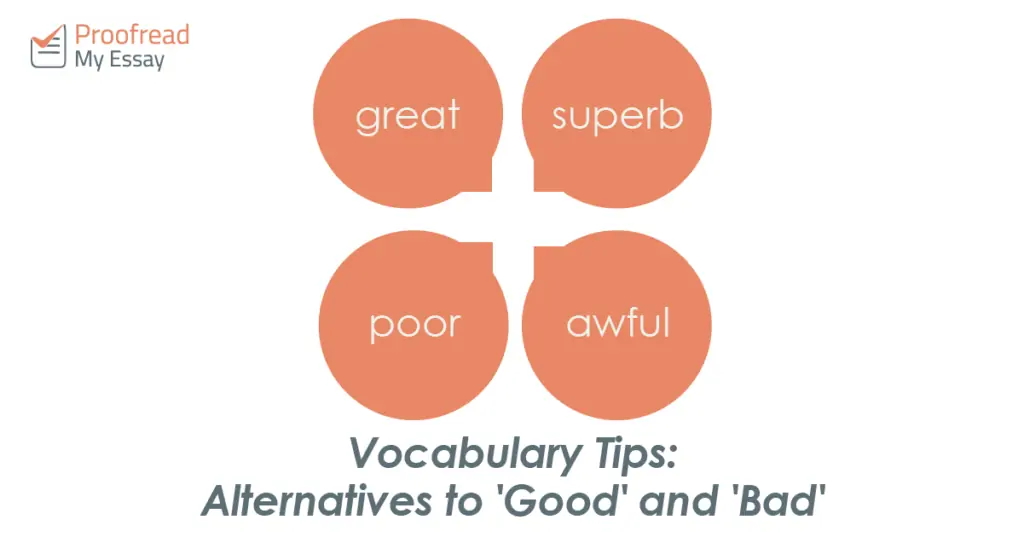‘Good’ is the most common adjective in the English language. ‘Bad’, meanwhile, is number 23 in the adjectival charts. As this might suggest, both of these words are often overused. Having a few alternatives can therefore add variety to your writing.
Alternatives to ‘Good’
‘Good’ has various meanings, but here we’ll focus on its use as an adjective. There are quite a few definitions even here, but we’ve sorted some common ones into the table below.
|
Definition |
Example |
Synonyms |
|
Enough in quality or degree
| We have a good number of participants. | Acceptable, adequate, satisfactory, sufficient |
| Very high quality
| I had a good time at the Tower of London. | Brilliant, excellent, great, outstanding, superb |
| Useful or beneficial
| Vitamin C is good for your immune system. | Advantageous, helpful, positive, valuable |
| Morally good or agreeable
| She is a good person. | Admirable, pleasant, respectable, virtuous |
These are not the only definitions of ‘good’. Nevertheless, the chart above should give you a general sense of how ‘good’ and its synonyms are used in different ways.
Alternatives to ‘Bad’
‘Bad’ is the opposite of ‘good’ in all of its meanings. As a result, this word is used in a similarly large number of situations. A few common uses are shown below.
|
Definition |
Example |
Synonyms |
| Substandard or faulty
| The bad design led to several failures. | Deficient, inadequate, mediocre, poor |
| Very low quality
| I have made some bad decisions in the past. | Awful, dreadful, terrible, unacceptable |
| Harmful or negative
| Smoking is bad for you. | Damaging, detrimental, injurious, unhealthy |
|
Immoral or disagreeable
| Murder is bad. | Evil, reprehensible, unpleasant, wrong |
As above, these are not the only definitions (or synonyms) for ‘bad’. However, the table above should help you work out which terms can be used as an alternative in which situation.
Find this useful?
Subscribe to our newsletter and get writing tips from our editors straight to your inbox.
‘Good’ and ‘Bad’ in Essays
We should also note that words like ‘good’ and ‘bad’ are not always ideal in essays. These terms, along with the alternatives above, are evaluative and emotive (i.e. they express how we judge or feel about something). But they don’t always provide much useful information.
For example, if we were writing a case study on a failed business, we might want to say that the management had made ‘several bad decisions’. But we’d also need to explain why those decisions were bad (i.e. the effects they had and how this impacted the business).
Unless we do this, the reader won’t know why we think they’re ‘bad’. So although you can use these terms in academic writing, they should come with an explanation. The same applies to any critical or descriptive writing.





